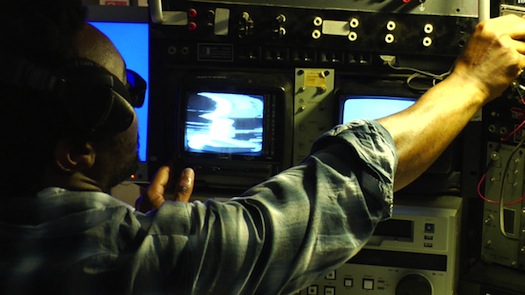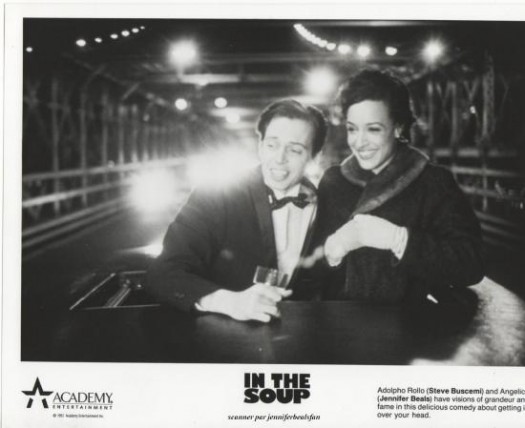When I moderate a panel, I get to ask some questions that aren’t the kind I often get to ask in a regular meeting. The questions are as much, and maybe perhaps more so, for the audience. Still though, I am generally trying to get at something: the how and why of creativity at this time in the world.
I learned a lot from moderating the “New Faces Of Indie Film” panel at Lincoln Center on Saturday June 11, 2011. Yes, in the future when I am involved on a panel I will insist upon diversity, and yes, I will set a limit to the number of people on the panel. But I also learned from the answers folks gave. I didn’t get to ask all of them, but had I, I had the list prepared. These are those questions.
Getting Started
Was there a particular event or time that you recognized that filmmaking was not just a hobby, but that it would be your life and your living?
Is it harder to get started or to keep going? What was the particular thing that you had to conquer to do either?
What advice would you give to someone who wanted to have a life creating film?
What was the most important lesson you had to learn that has had a positive effect on your film? How did that lesson happen?
You are a collaborator. How have you discovered members of your team and how do you keep the relationship with them strong?
You are here at the Universe’s Grand Temple Of Cinephilia. You are here because of your work and how you do it. What are personal attributes that make for a good filmmaker, and what do you do to foster them?
When I wanted to devote my life to making movies, my first decision was NY or LA. How does where you live influence how and what you make, and how do you think NY currently effects your work and process?
The Love Of Cinema
What makes a film great for you? Are there certain qualities that make a film better for you?
What films have been the most inspiring or influential to you and why?
When you get angry at a movie, what sets you off? Are there common qualities in cinema today that you dislike? Is there something you try to subvert or avoid or rebel against in your work?
We are all here presumably partially because we LOVE cinema. How did your love for movies get sparked and what can we — as a community — do to help others discover a similar pleasure?
The Process Of Creating
Generally speaking, when we want to learn about a film, we talk to the director. But those that make films, know how much they are really collaborations. What makes a fruitful collaboration? What do you do to enhance the collaborative process?
It is said that there are only six stories. Maybe twelve. It’s all been done before. And we have seen it all. What do you do to keep it fresh? Is there anything that you can do to subvert the process to keep it original?
We get noticed because of our successes – but we create them on the back of our failures. We learn best from the experiences where it doesn’t work. And yet we still only discuss the success, not the failure. What failures (of your own) have you been able to learn from? How did they change you and your process?
I often say one of the best methods of producing is “engineering serendipity.” Have you encountered serendipity in your work and do you think there is anything that you can do to bring more of it into your creative process? Why or why not, and if so, what is it that you and your team can do?
Films evolve through the creative process – sometimes most dramatically in the editing process. It’s often really hard to reconcile the difference between what we desired and what we achieved. How have you encountered this and how do you move through it?
“It all starts with the script.” Maybe not, but when do you know a script is ready to shoot, and what is your process of getting it there?
Several directors have told me that most of directing is actually casting. Regardless of whether that is true, some actors have “it” and sometimes they need something to make “it” pop. You’ve spotted that “it” and captured “it”. What is “it” and how do you find “it”?
I often wonder why anyone would want to direct. Why would you want to always have 100 decisions in front of you and have over 100 people waiting on your answer?
Film, perhaps more so than any other popular art form, is the compromise between art and commerce. How has your art been shaped by both the money you have had or not had? Do you create with budget limitations in mind?
The Structure Of The Business
Is the film business fair? Why or why not? How do you make the apparatus work for you?
Is it the filmmaker’s responsibility to find and develop your audience? Why do you feel that way?How will you collaborate with your audience, and how won’t you?
What do audiences want? And is it the filmmaker’s role to worry about that?
Is it possible to sell out? What would that mean to you and would you like it to happen or not? What do you do to encourage the professional approach you want?
If I was asked what was the most important advice I could give a filmmaker starting out, it would be “Try to manage your life so that you will feel as good about the film industry in fifteen years as you do now.” In your experience, is that true, and what can filmmakers do to achieve that challenge?
What role have film festivals played in your life so far? Why are they necessary? How do you get the most out of them?
The Changing Film World
When I got started, if your film got into Sundance, it meant people would see it in America, and maybe the world. I used to be confident that my partners and I could get two or more major distribution slots a year. Now that control and scarcity don’t define the Entertainment Economy, but superabundance & access do, how does that change things for creators? There are 45,000 films generated globally annually, and the largest consumption market in the world – the US – currently consumes only 1% of the output. Recognizing that, are you changing the way you work, changing what you create? How? Why? Or why not?
I am a big believer in the importance of social media in many aspects of the film process. Are you on social media and do you use it in your work? Why or why not?
When I got started there were two screens: the movie screen and the television screen. Now there are also computers, tablets, and phones. And screens are everywhere: the home, the bus stop, the elevator, the taxi cab. As a creator how does this effect the stories you tell and how you tell them?
If there is one or more thing you think would make the film industry better, what would it be?
Ethics of Creating
Do filmmakers have any responsibility to culture? Do you feel that being a creative person requires that you give back or tell a particular story or not do something else? Why or why not?




